How's the water situation at Cooper Canyon Trail Camp?
-
Richard N.
- Posts: 91
- Joined: Tue Feb 12, 2008 9:47 pm
The water is down stream. Maybe 1/4 mile from camp.
Decent flow right now.
Decent flow right now.
-
Hikin_Jim
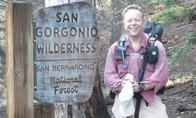
- Posts: 4688
- Joined: Thu Sep 27, 2007 9:04 pm
Anyone know if there's still water at Cooper Canyon Trail Camp?
HJ
HJ
-
mattmaxon
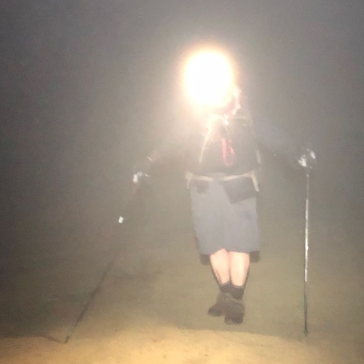
- Posts: 1137
- Joined: Mon Mar 24, 2008 12:48 pm
jim
that spring has been reliable through the years
I'd be surprised & dismayed if it was totally dry
that spring has been reliable through the years
I'd be surprised & dismayed if it was totally dry
-
Hikin_Jim

- Posts: 4688
- Joined: Thu Sep 27, 2007 9:04 pm
Well, debating my options. I might head up there on Saturday. I was in the area last Saturday and I was surprised to see that Little Rock Creek was dry at the PCT/Burkhart Trail crossing.
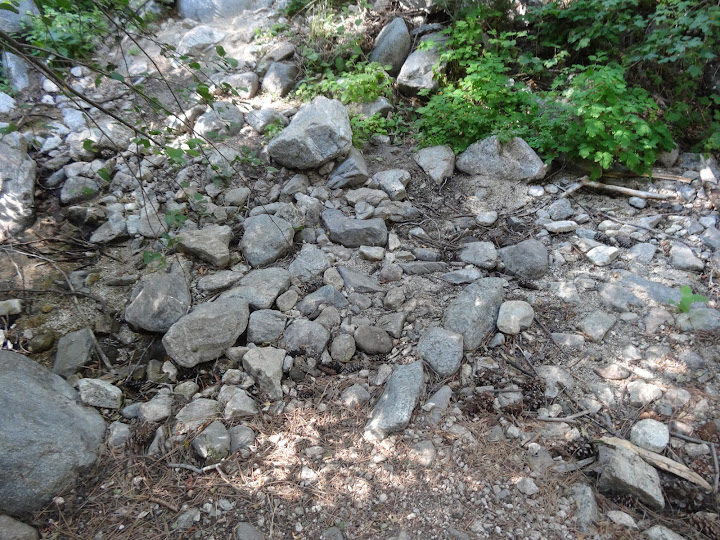
I was also surprised to see that the confluence of Little Rock Cr and Cooper Canyon Creek was shallow and scummy.
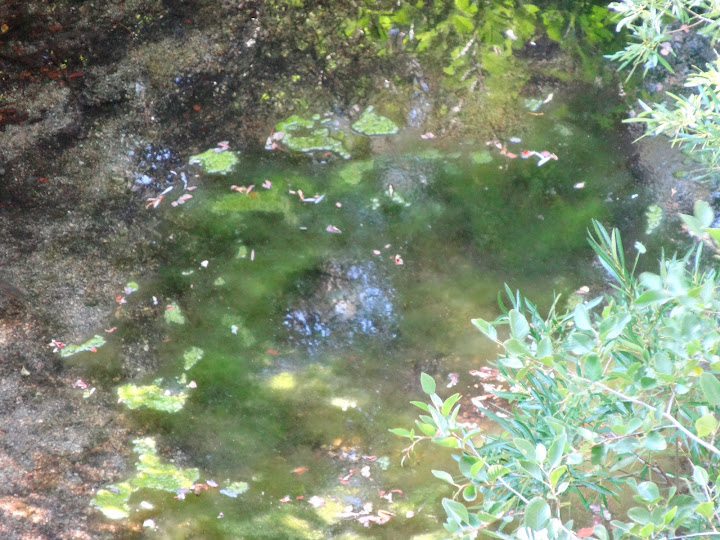
In May, the confluence was clear and had small fish in it.
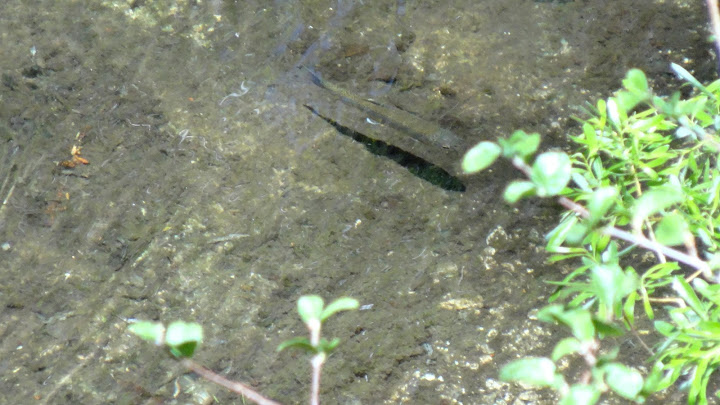
HJ
I was also surprised to see that the confluence of Little Rock Cr and Cooper Canyon Creek was shallow and scummy.
In May, the confluence was clear and had small fish in it.
HJ
-
Teejate
- Posts: 107
- Joined: Wed Oct 12, 2011 6:46 pm
I hiked past it last Sunday. Enough but not much.
Downstream was much better. No need to pack it in. You'll be fine.
Downstream was much better. No need to pack it in. You'll be fine.
-
tracker
- Posts: 199
- Joined: Wed Jul 25, 2012 11:20 pm
I'm glad to see that some fish might have survived the government assault. Three agencies with nets and back-pack electro-shock units have been working that drainage to remove every fish.
-
Hikin_Jim

- Posts: 4688
- Joined: Thu Sep 27, 2007 9:04 pm
Tracker,
When were they doing the electro-shock thing? Sounds kind of awful.
Those fish photos are from May 11, 2013.
HJ
When were they doing the electro-shock thing? Sounds kind of awful.
Those fish photos are from May 11, 2013.
HJ
-
tracker
- Posts: 199
- Joined: Wed Jul 25, 2012 11:20 pm
2010 - 2012 I think. That's why I was glad to see a fish in your pic. 
The whole thing was a debacle generated by lawsuits filed by the Center for Biological Diversity (Arizona) against government agencies. The allegation is that the government agencies are not doing enough as far as the spirit of the Endangered Species Act. Short translation: Since there are Arroyo Toads and Yellow-legged Mountain Frogs in the drainage, and they are both listed species, the non-native predatory trout must be removed. It's important to note that the action was not a court order or the result of a direct lawsuit about this location. It was a couple agencies deciding it would be better to be pro-active than get sued and lose.
Crews from the USFS, USGS, and CDFW worked from Littlerock Reservoir, all the way up to Hwy. 2 and back- several times.
A lot of tax money was spent to feed the raccoons and keep a few wackos in Arizona content.
The whole thing was a debacle generated by lawsuits filed by the Center for Biological Diversity (Arizona) against government agencies. The allegation is that the government agencies are not doing enough as far as the spirit of the Endangered Species Act. Short translation: Since there are Arroyo Toads and Yellow-legged Mountain Frogs in the drainage, and they are both listed species, the non-native predatory trout must be removed. It's important to note that the action was not a court order or the result of a direct lawsuit about this location. It was a couple agencies deciding it would be better to be pro-active than get sued and lose.
Crews from the USFS, USGS, and CDFW worked from Littlerock Reservoir, all the way up to Hwy. 2 and back- several times.
A lot of tax money was spent to feed the raccoons and keep a few wackos in Arizona content.
-
Mike P
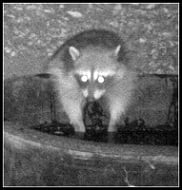
- Posts: 1005
- Joined: Tue Oct 02, 2007 10:48 pm
Sorry, tracker, gotta' disagree with you on this one. The non-native fish need to go. They wreak havoc on native amphibians.tracker wrote: 2010 - 2012 I think. That's why I was glad to see a fish in your pic.
The whole thing was a debacle generated by lawsuits filed by the Center for Biological Diversity (Arizona) against government agencies.
...edit...
A lot of tax money was spent to feed the raccoons and keep a few wackos in Arizona content.
So why should we have non-native trout (or any other non-native fish species, for that matter) in the lakes, rivers, or streams of any mountain range? That is, aside from the big bucks that fishing tourism brings to many local mountain economies...
-
Hikin_Jim

- Posts: 4688
- Joined: Thu Sep 27, 2007 9:04 pm
Don't know about any electro-shocker gizmos. Seems like they'd kill native and non-native alike. That aside, the drought may do more than the FS ever could. Little Rock Creek was completely dry at the crossing of the Burkhart Trail on Saturday. Well, the creek bed was a little damp looking in one spot, but there was no flow and no pools visible either upstream or down stream. There was still water at the confluence with Cooper Creek.
Buckhorn Creek on the other hand was still flowing, and the "little spring that could" was still flowing, albeit slowly, at Cooper Canyon Trail Camp.
The creek that one passes en route to Burkhart Saddle from the south was dry as were all the small creeks between Burkhart Saddle and Little Rock Creek that I passed.
Map Link
Key:
A - Cooper Canyon Trail Camp - Water (low flow)
B - PCT crossing of Cooper Creek - Water (very low flow, but good pools)
C - Burkhart Trail crossing of Buckhorn Creek - Water (decent flow)
D - Confluence of Cooper Creek and Little Rock Creek - Water (low flow)
E - PCT/Burkhart Trail crossing of Little Rock Creek - Dry
F - Small side stream, Burkhart Trail - Dry
G - Principal creek en route to Burkhart Saddle - Dry
HJ
Buckhorn Creek on the other hand was still flowing, and the "little spring that could" was still flowing, albeit slowly, at Cooper Canyon Trail Camp.
The creek that one passes en route to Burkhart Saddle from the south was dry as were all the small creeks between Burkhart Saddle and Little Rock Creek that I passed.
Map Link
Key:
A - Cooper Canyon Trail Camp - Water (low flow)
B - PCT crossing of Cooper Creek - Water (very low flow, but good pools)
C - Burkhart Trail crossing of Buckhorn Creek - Water (decent flow)
D - Confluence of Cooper Creek and Little Rock Creek - Water (low flow)
E - PCT/Burkhart Trail crossing of Little Rock Creek - Dry
F - Small side stream, Burkhart Trail - Dry
G - Principal creek en route to Burkhart Saddle - Dry
HJ
-
cougarmagic

- Posts: 1410
- Joined: Wed May 07, 2008 5:21 pm
-
Hikin_Jim

- Posts: 4688
- Joined: Thu Sep 27, 2007 9:04 pm
Oh, OK. I assumed they were electrocuting everything in the water. It's actually a stun only procedure. I guess they then cull everything that floats to the top that doesn't belong? Doesn't look like it worked very well.
I've seen fish in multiple locations in the Cooper Creek/Buckhorn Creek/Little Rock Creek area. Most no longer than my hand, but they are fish.

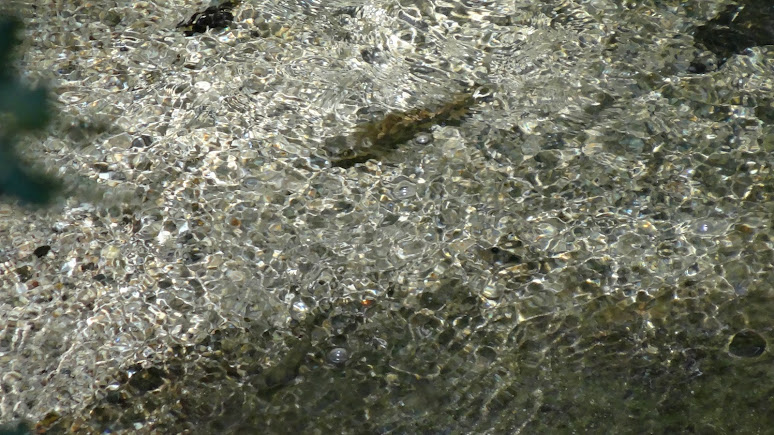
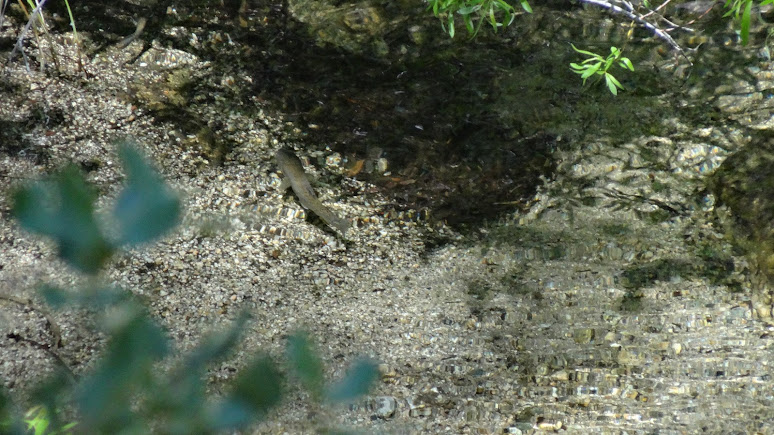
HJ
I've seen fish in multiple locations in the Cooper Creek/Buckhorn Creek/Little Rock Creek area. Most no longer than my hand, but they are fish.
HJ
-
tracker
- Posts: 199
- Joined: Wed Jul 25, 2012 11:20 pm
Yeah Jim the electro-fishing doesn't kill the fish, it just stuns them for a short time. Flinging them up on the bank is kind of hard on them though.
As far as native vs. non-native, I can only account for the last 50 or so years; but I do trust the scientists that ID salmonid bones in Native American digs throughout the SG and SM drainages. Rainbow Trout are native to SoCal. Even the drainages that don't go to the ocean. The fish in the Littlerock / Cooper drainage may very well be the progeny of hatchery mutants from the stocking program but who knows. No one has checked. California has an extensive DNA database on Trout.
Mother Nature eliminated the equines from North America a long time ago but western European man put them back. Are they native? I would say not - yet they enjoy a legal protected status like no creature on this continent. They have huge impacts on native species, should we use tax dollars to kill them?
Let's ask lawyers and extremists in another state what we should do.
End Rant
As far as native vs. non-native, I can only account for the last 50 or so years; but I do trust the scientists that ID salmonid bones in Native American digs throughout the SG and SM drainages. Rainbow Trout are native to SoCal. Even the drainages that don't go to the ocean. The fish in the Littlerock / Cooper drainage may very well be the progeny of hatchery mutants from the stocking program but who knows. No one has checked. California has an extensive DNA database on Trout.
Mother Nature eliminated the equines from North America a long time ago but western European man put them back. Are they native? I would say not - yet they enjoy a legal protected status like no creature on this continent. They have huge impacts on native species, should we use tax dollars to kill them?
Let's ask lawyers and extremists in another state what we should do.
End Rant
-
Mike P

- Posts: 1005
- Joined: Tue Oct 02, 2007 10:48 pm
Since you asked:tracker wrote: Mother Nature eliminated the equines from North America a long time ago but western European man put them back. Are they native? I would say not - yet they enjoy a legal protected status like no creature on this continent. They have huge impacts on native species, should we use tax dollars to kill them?
Let's ask lawyers and extremists in another state what we should do.
End Rant
Feral horses on open range are horrible on the environment. Our tax dollars are also being spent keeping them in big pens and feeding them. It is tough to control their populations; researchers at UC Davis and other places have worked on different contraceptive approaches with so-so success.
Unfortunately, people have romanticized the West and demanded protection for these animals. Now we have to deal with the unintended consequences...
Controversial (and to some, boring) stuff for sure.
Apologies to all. I didn't intend to hijack this thread.
-
tracker
- Posts: 199
- Joined: Wed Jul 25, 2012 11:20 pm
Not at all, I'll take the blame for commenting on the fish in Jim's water pic. I had just been talking to some people about the fish being removed from that drainage when I saw the pic. I'm glad to see they didn't do a good job.
It's a sore spot with me when habitat and wildlife management is governed by politics and emotions instead of science and reason. If horses can stomp desert tortoises, then trout shouldn't be killed for eating tadpoles.
-
Hikin_Jim

- Posts: 4688
- Joined: Thu Sep 27, 2007 9:04 pm
Whoa! Look at this really cute pic of my daughter hiking! 
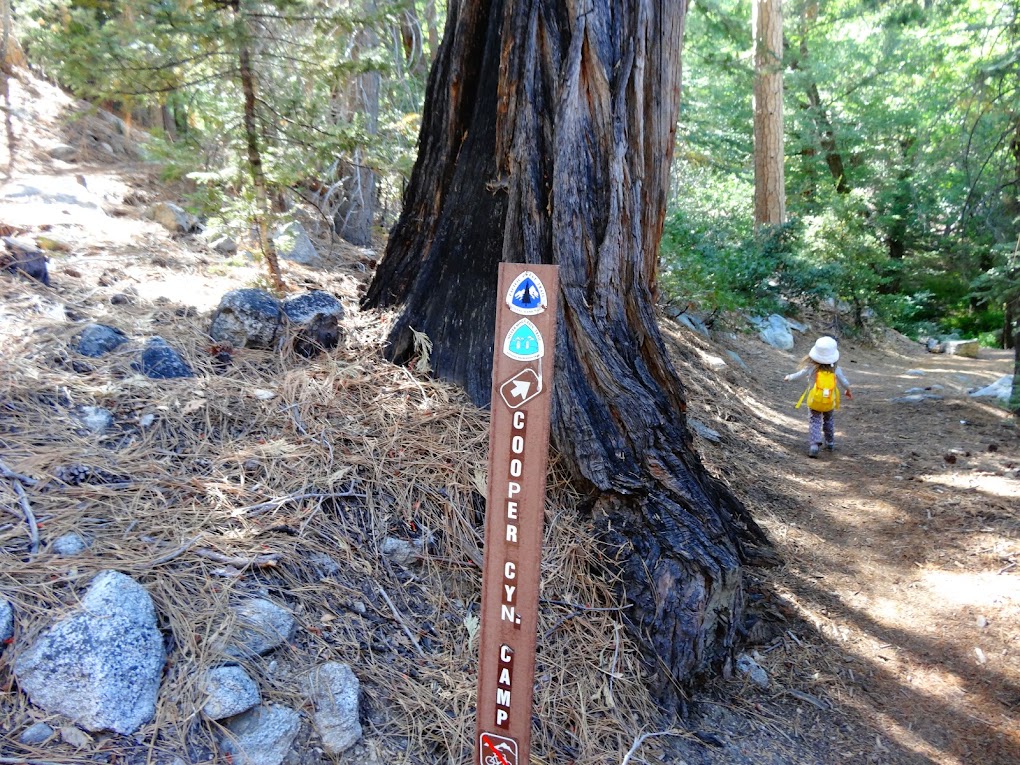
HJ
HJ
-
Slowest_Hiker
- Posts: 264
- Joined: Sun Jul 31, 2011 12:31 pm
Subject says it all -- is there enough to pump from near the campground these days? Thanks!
-
EBruddah
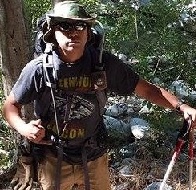
- Posts: 20
- Joined: Thu Aug 20, 2015 4:38 pm
Inquiring minds want to know.. I plan on heading up to this place this month.Slowest_Hiker wrote: Subject says it all -- is there enough to pump from near the campground these days? Thanks!
-
RelaxedJ
- Posts: 1
- Joined: Sat Sep 05, 2015 3:56 pm
For what it's worth: as of two weeks ago (Aug 19th or so), there was water deep enough to pump where the Burkhart trail meets the canyon bottom. Cooper Canyon 'falls' were flowing at a very slow trickle and the pool at the bottom was reasonably full including the usual fish.There are some unofficial campsites nearby.
No idea if there's water at the official campground, sorry.
No idea if there's water at the official campground, sorry.
-
Slowest_Hiker
- Posts: 264
- Joined: Sun Jul 31, 2011 12:31 pm
Following an overnight at Cooper Canyon campground last night, I can answer my own question  There is enough water to pump at the CG right now, but it is in pools with no perceptible flow.
There is enough water to pump at the CG right now, but it is in pools with no perceptible flow.
-
Slowest_Hiker
- Posts: 264
- Joined: Sun Jul 31, 2011 12:31 pm
Oh yes, also any recent reports from Cooper Canyon campground?
-
Slowest_Hiker
- Posts: 264
- Joined: Sun Jul 31, 2011 12:31 pm
Back from my own recon. There's enough in the campground to filter right now, but I wouldn't count on it for long without rain (just some pools with no noticeable movement). There's ample water back near the Burkhardt/PCT junction. Spigots are leaking in Buckhorn CG so they seem to be on.
-
Slowest_Hiker
- Posts: 264
- Joined: Sun Jul 31, 2011 12:31 pm
Any recent water info for the vicinity of the Cooper Canyon campground?
-
Slowest_Hiker
- Posts: 264
- Joined: Sun Jul 31, 2011 12:31 pm
I seem to be the primary user of Cooper Canyon CG lately! As of today, water at the campground is not super generous, but sufficient to support filtering for an overnight.
-
Sean

- Cucamonga
- Posts: 4227
- Joined: Wed Jul 27, 2011 12:32 pm
Yeah, for at least the last three years! You could also check the PCT water report. Though it's not always very recent. In this case, the last report for Cooper Canyon was back in June.Slowest_Hiker wrote: I seem to be the primary user of Cooper Canyon CG lately!
